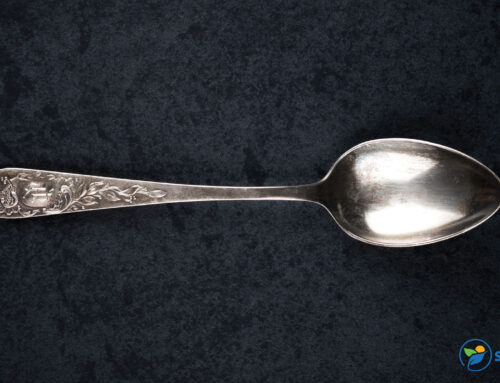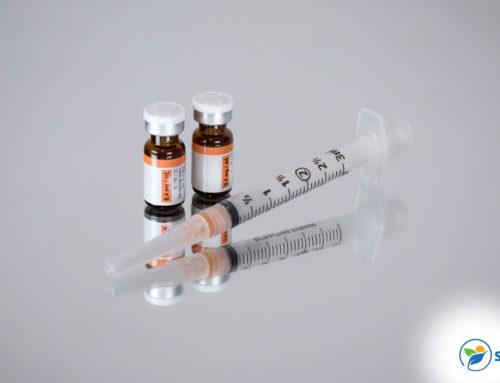When a doctor prescribes painkillers, it’s natural to assume your medication will make you feel better. However, opioid-induced hyperalgesia turns this assumption on its head. People with opiate-induced hyperalgesia experience worsening pain when they take opioid painkillers.
If you take opiates to treat a painful condition or use opioid medications illicitly, understanding the risk of opioid-induced hyperalgesia can empower you to make the best choices for your health and well-being. This guide explains everything you need to know about opioid-induced pain sensitivity, including its causes and how to break the cycle.
The Double-Edged Sword: Long-Term Opioid Use and Hyperalgesia
Opioid painkillers are powerful drugs that can help relieve pain in certain contexts. For example, doctors often prescribe opiates for a short period to treat pain after surgery.
However, problems can occur when you take opiates for more extended periods, such as to treat chronic pain. Opiates such as morphine work by attaching to opioid receptors in the brain and reducing pain signals. However, this process also causes feelings of pleasure or euphoria, which can make these medications addictive. Therefore, opioid medications are highly controlled to reduce the risk of dependence.
You’ve probably heard about the opioid epidemic in the United States. Sometimes, people who receive a legitimate prescription for opiates develop an addiction to their medication, causing them to take too much or seek illicit supplies of the drugs. Misusing opiates or taking street drugs can significantly increase your risk of an overdose.
However, taking opiates can cause another lesser-known issue called opioid-induced hyperalgesia. This means your medication can make you more sensitive to pain over time. Opiate-induced hyperalgesia can occur even if you take your medicine exactly as prescribed.
Unraveling the Complex Relationship: Opioids, Pain and Hyperalgesia
Some people develop opiate-induced hyperalgesia the first time they take opiates, but the problem is more often caused by long-term use. Opioid-induced hyperalgesia causes the pain to worsen instead of improve, and you may experience pain unrelated to the injury or condition being treated. It can cause you to become more sensitive to painful stimuli or experience pain from typically non-painful stimuli.
Your health care provider may suspect opioid-induced hyperalgesia if your pain gets worse while taking opiates and the pain increases when you increase your dosage. Alternatively, reducing your dosage may improve your pain levels. Research shows that increased sensitivity to pain may persist after stopping your medication and worsen when you take more opioid painkillers.
Understanding Opioid-Induced Hyperalgesia: How Opioids May Paradoxically Worsen Pain
How opioid medications cause opioid-induced hyperalgesia isn’t fully understood. Scientists believe the condition occurs as a result of neuroplasticity, which means the nervous system forms new pathways to overcome changes. Neuroplasticity helps us develop new connections after a brain injury or another health event. However, it can cause significant problems when you alter your perception of pain with opiates.
When you take opiates, particularly over the long term, your body attempts to correct the change in your pain responses by activating new pain pathways. Over time, these new pathways and connections can make you more sensitive to pain. For example, a mildly uncomfortable procedure like a vaccination could feel unbearably painful for someone with opioid-induced hyperalgesia.
Opioid-induced hyperalgesia causes symptoms similar to opioid tolerance, but there are important differences between the two conditions. Opioid tolerance occurs when your body becomes less sensitive to opiates, so you’ll need a higher dose to achieve the same level of pain relief. In people with opioid tolerance, increasing the dose reduces their pain. However, increasing the dose in someone with opioid-induced hyperalgesia makes the pain worse.
Some people are more prone to opioid-induced hyperalgesia than others. Factors such as your genetics and physical or mental well-being can increase or reduce your risk of developing the condition. However, it’s clear that using opiates frequently or over extended periods can significantly increase the likelihood of hypersensitivity to pain.
Breaking the Cycle: Managing Pain and Reducing the Risk of Hyperalgesia
Diagnosing opiate-induced hyperalgesia can be challenging because it often mimics the symptoms of opioid tolerance. Therefore, health care providers sometimes prescribe higher doses of painkillers, creating a vicious cycle of worsening pain and increased opiate use.
If you notice your pain worsening when you take opiates or are worried about opioid-induced hyperalgesia, you should speak to your provider. They may recommend gradually tapering your opioid use, which means decreasing how much you take in small increments over time until you stop using the medication altogether. Alternatively, they may suggest taking regular breaks from opiates if you need opioid medications to manage pain. These breaks are sometimes called “opiate holidays” and can reduce the risk of problems such as tolerance and hyperalgesia.
Non-opiate pain relief treatments and self-help measures can help you manage pain during an opiate holiday or while tapering off opiates. Below, we’ll explore some ways to reduce pain without opioid medications.
Alternative Approaches: Exploring Non-Opioid Pain Management Strategies
There are various ways to manage pain without opiates, and which techniques are appropriate for you depends on your circumstances. If you take opiates to address a painful chronic condition, such as arthritis, physical therapy can help strengthen the muscles supporting your joints and relieve pain. You could also ask your doctor about non-opioid painkillers or injections to reduce pain and inflammation.
Some people find behavioral therapies helpful in managing pain. For example, research shows that cognitive behavioral therapy (CBT) can help you adapt how you think about pain and engage in activities that could reduce discomfort, such as physical exercise.
Get Support From the Experts
If you’re concerned about long-time opiate use or misuse in yourself or someone else, the experts at Sunlight Recovery are ready to help. Our knowledgeable practitioners can create a personalized treatment plan to help you achieve freedom from opiates and manage the psychosocial aspects of opiate use. Get in touch today to discuss your options with a member of our team.






